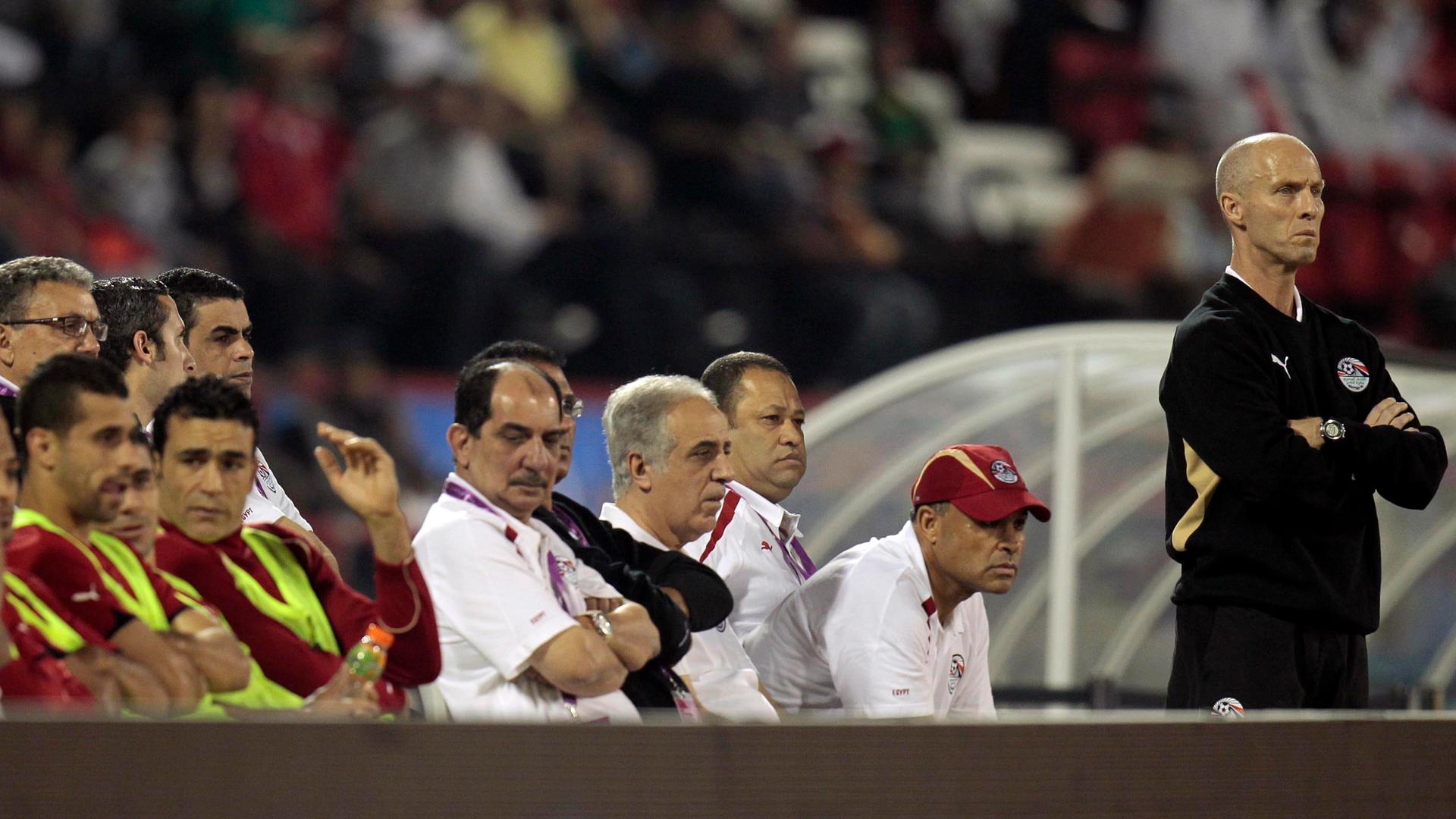The former American coach of Egypt’s national soccer team recalls the Port Said riots
The former head coach for Egypt’s national soccer team, Bob Bradley of the U.S. looks on during an international friendly 2011 match against Brazil in Doha, Qatar. Bradley was in Egypt during the Port Said riots that broke out in February of 2012 after a match between two local club teams.
When soccer coach Bob Bradley agreed to coach Egypt's national soccer team in September 2011, the country was ripe for change. Bradley recalled watching the country's revolution on TV from his home in the US earlier that year.
"I think, like so many, we saw the way people came together and voiced their opinions and in some ways we saw this as a step forward for democracy," he said.
Bradley previously coached the US men's national soccer team during the 2010 World Cup, but that didn't prepare him for what he was going to face in Egypt. His role as coach meant he was on the frontlines of political upheaval.
In February 2012, Bradley watched as 74 fans were killed at the Port Said stadium after a match between Al-Masry and Al Ahly — two local soccer club teams. The clash was eventually dubbed the Port Said riots.
"That's a night that I'll never forget," he said. "We watched the first half on TV. You could tell that there was a tremendous amount of emotion in the stadium and I'll never forget seeing the final whistle, and at that point people storming out of the stands on the field, and the players literally scrambling to get to the locker room."
"What caught your eye, more than anything, was the fact that the security that was on the field seemed to be doing nothing. And for the rest of the night, I followed events, I talked to my staff and, honestly, we knew right away that this was more than fan violence," he added.
During and after the riots, the locker room for the Al Alhy team was used as a first-aid station, according to Bradley. Many of the players on Al Alhy are members of Egypt's national team.
"Young people were brought in, many of whom actually died in the locker room," he said.
Despite the violence, soccer seemed to anchor the country, with a common goal of trying to get to the next World Cup. Egypt didn't qualify for Brazil, but hopes are high for an appearance in the 2018 World Cup in Russia.
"You have young people, many of whom have young children, and they're thinking about what they want Egpyt to be like for their kids. And at that moment there was so much instability and so much uncertainty," he said.
"At a difficult time in the country, the one thing that seemed to be common for everyone was this goal to get to the World Cup. So we tried to think that we had a special opportunity and that we could do something that could make all Egyptians happy. So that's how we tried to focus our efforts in the weeks and months that followed."
